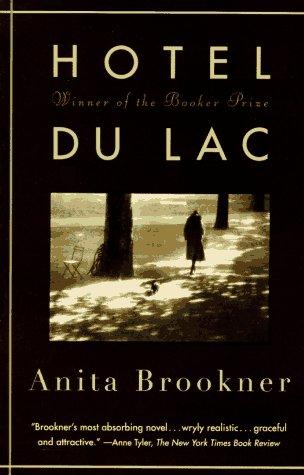 --The blurb--
--The blurb--"Edith Hope (a.k.a. romance author Veronica Wilde) has been banished by her friends to a stately hotel in Switzerland. During her stay she befriends some of the other guests, each of whom has his or her own tale. Edith struggles to come to terms with her career and love--the lack, the benefits, and the meaning thereof."
--The review--
The Booker Prize judges don't always get it right - they're only human, after all - but after reading the frankly insipid The Rules of Engagement, also by Brookner, I was very much hoping that the Booker judges hadn't put the prize's name on something similarly forgettable in Hotel du Lac.
They admittedly had a very tough decision ahead of them in 1984, with the prize's shortlist exclusively containing big names (JG Ballard, Anita Desai, David Lodge, Julian Barnes, and Penelope Lively) with proven track records. Some might argue straight off that the wildly successful Empire of the Sun (Ballard) and the accomplished Flaubert's Parrot ought to have won over Brookner's efforts; both of these have perhaps won the public's hearts to a greater degree and enjoyed a more enduring or obvious legacy. But the election of Hotel du Lac to the winner's post for that year is not so abstruse; there are a great many positives to this short novel.
As well as being well-structured (having any novel divided into readable chunks is always a plus point), Brookner's characterisation and her setup of the scenario is immediately more intriguing than in The Rules of Engagement. The characters are not numerous, but they are colourful and eccentric, contrasting well with the serenity of the accompanying landscape, and there is plenty in them to both attract and anger the reader. Edith's purpose in being there is gracefully unfolded and Brookner sets up a deft twist by leading readers to expect Edith's time at the hotel to end predictably, before sending them in another direction completely. This surprising volte-face shows another side to Brookner's prose that makes her work instantly more appealing, and while her characters are not the most immediately comprehensible or likeable, the combination of such personages along with an almost paradisiacal setting and a precise plot is certainly a winning package with, one could posit, a far more universal allure than the other novels in the 1984 shortlist.





No comments:
Post a Comment